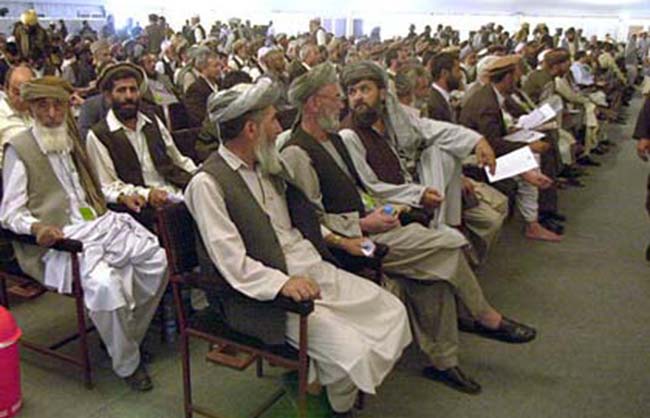In a tradition-bound society, breaking social norms or moral standards will trigger public emotions and prompt the locals to show violent reaction without considering the state law. The traditional customs hold sway to the extent that will outweigh state and divine laws. Violating the accepted norms will spark a burning sentiment which may lead to major conflicts. One will not be able to exercise the freedoms of thoughts and expressions. The locals’ dogmatic beliefs decrease religious tolerance to the lowest level. I will not challenge the faith and beliefs of a traditional community but mostly their practices have no legal bases.
To consider the tragic death of Farkhunda - a 27-year-old woman who was lynched by angry mob near the Shah-e Doh Shamshira shrine and mosque in Kabul on the Eve of solar year of 1394 – who was accused of burning the Holy Quran and, subsequently, killed by the locals without referring to state or divine laws. Similarly, the desert courts which are conducted in tribal belts every once in a while and violence against women and killing them in case of eloping with the men of their choices, which are mostly rife in villages where traditional customs are highly prominent, demonstrate the practices of the traditionalists who claim to be religious.
According to Afghanistan’s Constitution – which is based on Islamic values as stated in article 3, “No law shall contravene the tenets and provisions of the holy religion of Islam in Afghanistan” – the locals do not have the right to prosecute or punish the accused or criminals. Moreover, article 25 of the Constitution and article 4 of penal code say, “Innocence is the original state. The accused shall be innocent until proven guilty by the order of an authoritative court.” Therefore, since accusing one of crime and punishing him/her is a flagrant violation of law, it will be followed by legal prosecution so that the violators do not be let break the law with impunity.
The rights of accused/suspects are very critical in our judicial system and his/her freedoms are not to be curtailed unless there are some documents which suggest their crime. Moreover, the accused/suspects have the rights to access to attorney so as to protect his/her rights on the legal basis. If an accused, who is proved innocent, sustains harm or loss, the state will have to reciprocate.
Additionally, one’s human dignity, be it criminal or innocent, is never supposed to be violated as the country’s Constitution states in article 24, “…Liberty and human dignity are inviolable. The state shall respect and protect liberty as well as human dignity.” So, “human dignity” is held in great respect in state and divine law and no one, including the state, can disrespect one’s dignity regardless of his/her personality.
It is worth saying that societal norms or moral values, which have gained the upper hand over the law in some villages, have no legal sanctions. Therefore, when one breaks the social norms, he will not be prosecuted since it is not a crime. For instance, when a girl elopes with a man of her choice, she has not committed a crime but broken a societal norm. Hence, she does not deserve to be punished. In a nutshell, punishing or killing her on the grounds of breaking a moral taboo is a major crime in both state and divine laws. So, a surge of public sentiments in a traditional community, which mostly stems from violation of the embedded values, cannot justify violating state or divine law.
Since traditions, which are handed down from one generation to the next, are deeply embedded in a society’s values, only subtle changes will be acceptable. In another item, an iconoclast who seeks a sudden change with good intention, though, will be turned down by the public. Our history shows the same fact. For instance, in 1919 after the 3rd Anglo-Afghan war, Amanullah Khan, who was a pioneer and modernist king, claimed the independence of Afghanistan. Soon after acquiring Afghanistan’s independence, he introduced a strong wave of modernization and intended to change a traditional society into a modern one overnight. When he made a trip to Europe, he was influenced greatly by their culture and modernity. He had returned in 1928 and brought with him many Western ideas, including social and cultural changes. Subsequently, he faced a backlash from the public and his plan was proved abortive.
I will not say that we should change our traditions but we have to fight the wrong traditional customs which are in conflict with state and religious laws. We should place a higher priority on law rather than traditions. Our cultural values and moral standards should marry with religious tenets instead of dogmatic beliefs and superstations. To minimize these challenges, we will have to analyze and look at the issue from the lens of law and religion.
Home » Opinion » Traditions Gain the Upper Hand over Law
Traditions Gain the Upper Hand over Law
| Hujjatullah Zia

